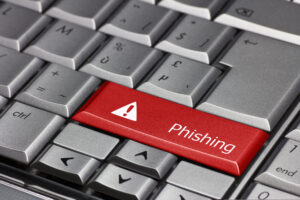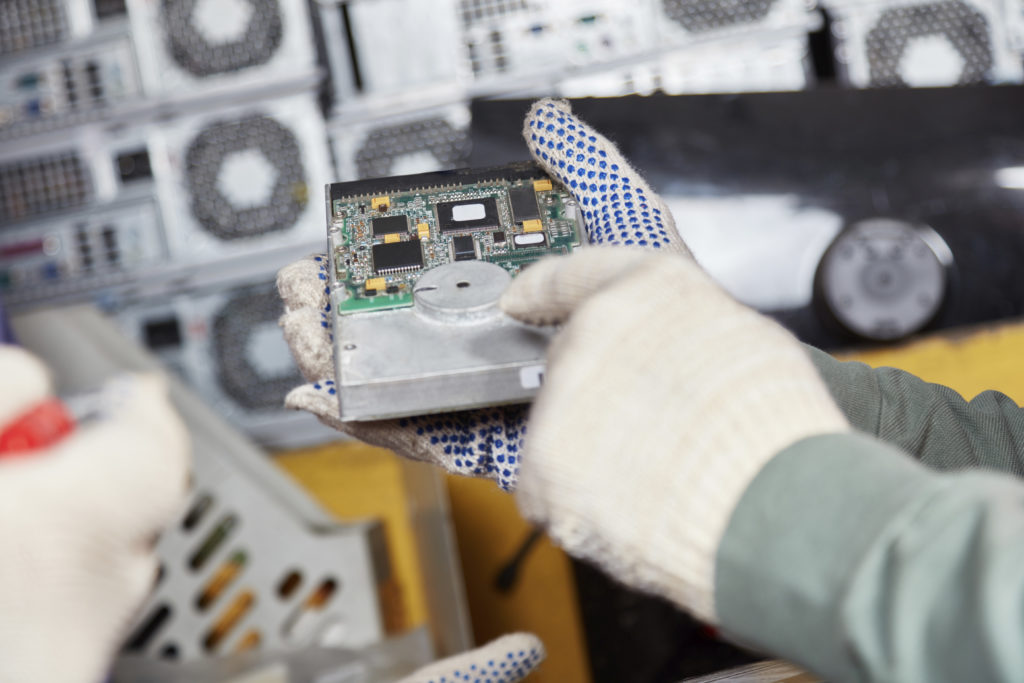
Think Before You Click: Understanding Modern Phishing Tactics
In today’s digital world, cybersecurity threats are everywhere and phishing is one of the most common and dangerous. You may think you’d never fall for

The world is becoming increasingly dependent on electronics. We use our phones and computers more than ever to communicate, shop, and entertain ourselves. But with this increased reliance comes an increased waste stream. Environmental activists have been sounding the alarm about the amount of e-waste being produced in recent years, and they’re right: it’s a big problem!
The volume of electronics discarded around the world is staggering—and rapidly growing. In 2018 alone, it was estimated that approximately 50 million tons of e-waste was globally discarded. That’s not even counting smaller items like batteries or chargers that might be thrown away over time as well! The United States alone generated 2.7 million tons of consumer electronics goods in 2018! With so many used devices being discarded every year without recycling first you can see how quickly this problem could spiral out of control if left unchecked.
Electronics contain both valuable and hazardous materials that need to be dealt with properly. Most people don’t realize that, when they toss their old electronics in the garbage or even donate them to a charity thrift store, they’re essentially throwing away a lot of money!
Why? Well, because electronic devices often contain precious metals like gold, silver and platinum. This is why it’s so important to make sure your e-waste recycling company knows how to handle these components safely so you can get maximum value from your materials.
Electronic waste contains toxic materials that can cause health and environmental problems. These include lead, mercury, cadmium, arsenic, beryllium, chromium and nickel. When these metals are released into the soil or water they can be harmful to both humans and wildlife. For example:
Lead can have negative effects on human brain development as well as cardiovascular health.
Mercury is a neurotoxin that causes damage to the nervous system of humans and animals. The ingestion of even small amounts of mercury is dangerous for children and developing fetuses in particular because it affects their brains’ ability to learn new information.
Cadmium can cause kidney disease over time when ingested by humans through aerosolized dust particles or food waste. Cadmium exposure has also been linked with diabetes mellitus type 2 in smokers with past occupational exposure to this metal.
As you might imagine, recycling e-waste creates jobs. That’s good news for the environment and it’s good news for the economy! The more e-waste that gets recycled, the more opportunities there are to create jobs in our communities, especially in rural communities where jobs may be harder to secure. It creates jobs that pay well and offer benefits like health insurance and retirement plans, which few industries can do these days.
E-waste recycling creates more jobs than simply recycling the material. The process of breaking down phones, computers and other electronic devices provides an opportunity to recover valuable materials like gold, copper and platinum. These metals are then reused in new products or sold on the commodities market.
Workplace clutter and physical disorganization has been linked with reduced productivity, lower employee morale, higher stress levels and absenteeism. It’s important to keep your workplace organized so that you can work efficiently, but sometimes things just tend to pile up around the office.
With e-waste recycling, you can clear out all those old computers and other materials that no longer serve any useful purpose. You can also help promote a better work environment by keeping the place clean and clutter-free, which will improve morale among employees while increasing productivity overall!
E-Waste Recycling is an important part of keeping our environment safe and healthy. It helps reduce the amount of toxic materials that can find their way into landfills or waterways, which is particularly important because many electronics contain hazardous materials. Our consultants can help you find the right professional to handle your e-waste recycling needs. We have extensive experience in this field and can refer you to a reputable company that will safely dispose of your business’ electronic waste.

In today’s digital world, cybersecurity threats are everywhere and phishing is one of the most common and dangerous. You may think you’d never fall for

In today’s digital-first world, businesses rely on secure and uninterrupted network connectivity to maintain productivity and protect sensitive data. As cyber threats become more sophisticated

In the face of ever-evolving cyber threats, traditional security measures like antivirus software and firewalls are no longer sufficient to safeguard businesses from sophisticated attacks.